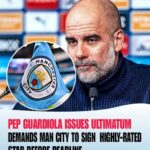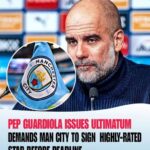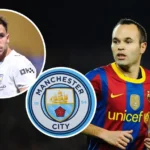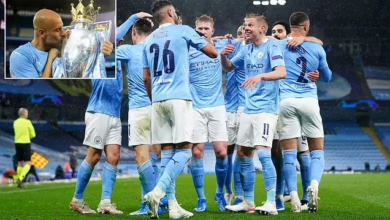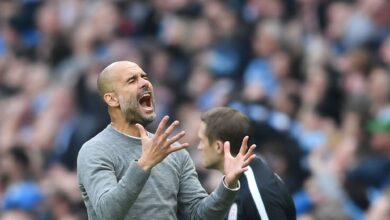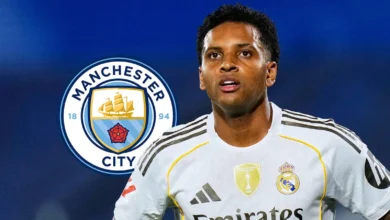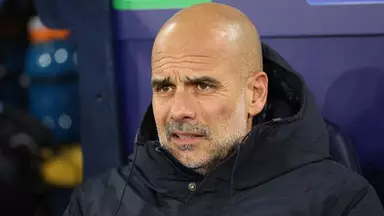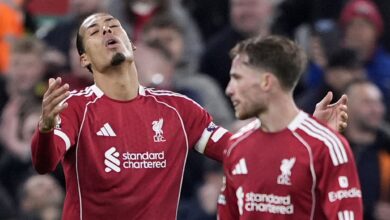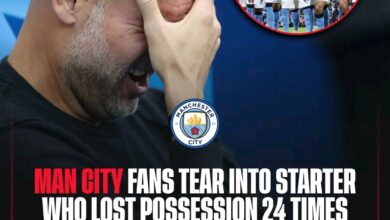Manchester City Crisis: Guardiola Under Fire Over Gonzalez Situation
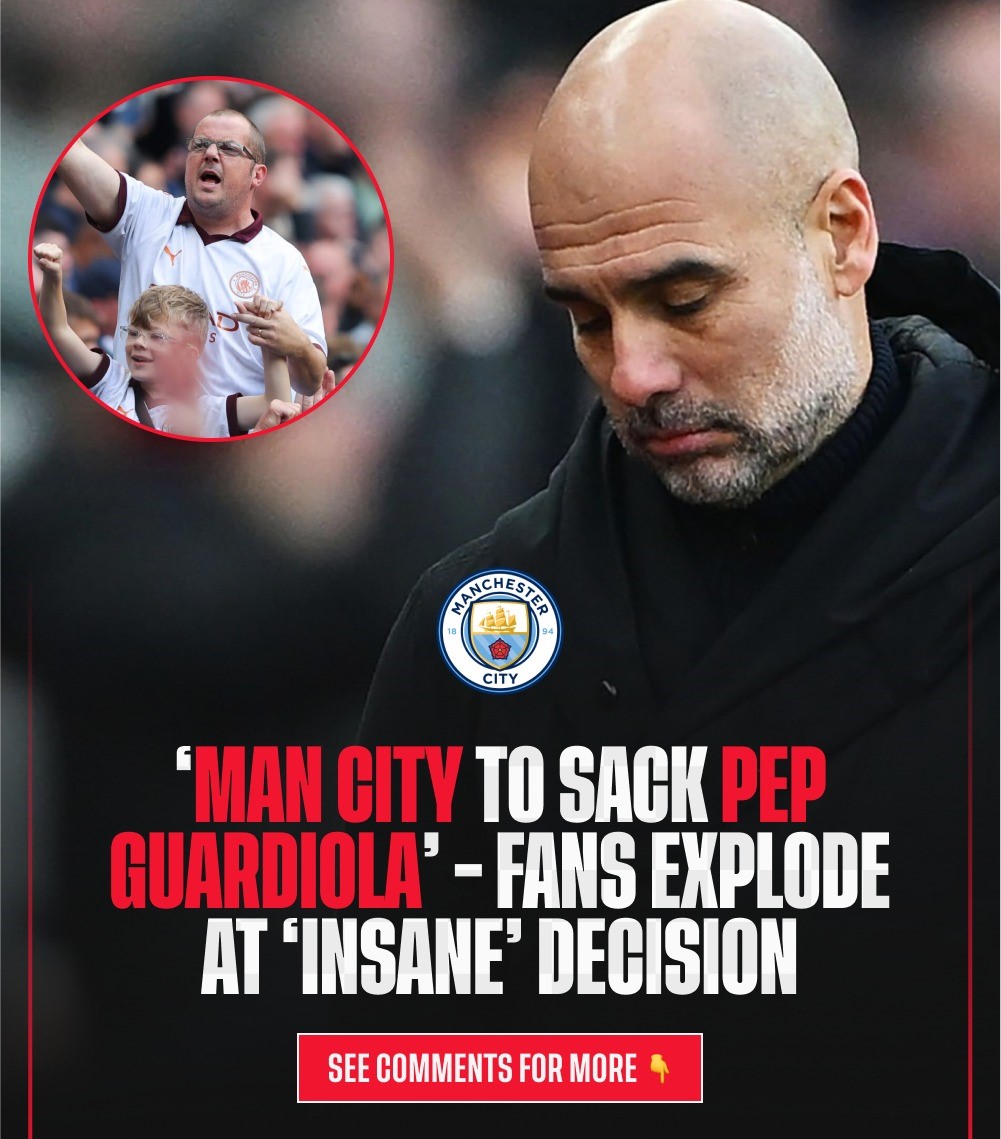
Manchester City finds itself at the center of a brewing storm, with supporters directing their frustration toward manager Pep Guardiola following revelations about the uncertain future of January signing Nico Gonzalez. The Spanish midfielder’s rapid fall from grace has ignited a fierce debate about Guardiola’s management style and decision-making processes, with some fans going as far as calling for the legendary manager’s dismissal.
The Gonzalez Gamble: A £50 Million Investment Gone Wrong?
When Manchester City secured Nico Gonzalez from Porto in January 2025 for a substantial £50 million fee, the move was heralded as a masterstroke of forward planning. The Spanish midfielder was positioned as the long-term successor to Rodri, the instrumental figure whose injury earlier in the season had exposed City’s vulnerability in the defensive midfield position. Gonzalez arrived with an impressive reputation, having established himself as one of Europe’s most promising young talents during his time in the Portuguese league.
The initial signs were promising. Gonzalez’s early performances in a City shirt showcased the qualities that had attracted Guardiola’s attention: exceptional passing range, tactical intelligence, and the composure needed to operate at the highest level. His debut appearances suggested that City had found their answer to the Rodri succession question, with the young Spaniard demonstrating an innate understanding of Guardiola’s complex tactical systems.
However, as the season progressed, Gonzalez’s involvement in first-team affairs began to diminish dramatically. What started as a promising integration into City’s setup quickly transformed into a concerning pattern of exclusion. The midfielder found himself increasingly marginalized, with his appearances becoming sporadic and his influence on matches negligible.
The Decline: From Promise to Periphery
The turning point in Gonzalez’s Manchester City career came during the latter stages of the 2024-25 campaign. Having initially impressed with his technical ability and tactical awareness, the Spanish midfielder began to find himself on the periphery of Guardiola’s plans. His exclusion from the starting XI became more frequent, and his overall contribution to the team’s success appeared to wane.
The Club World Cup provided a stark illustration of Gonzalez’s diminished status within the squad. Despite the tournament’s significance and the opportunities it typically provides for squad rotation, Gonzalez managed just one start throughout the competition. This limited involvement raised questions about his future prospects at the club and suggested that Guardiola’s confidence in the player had significantly eroded.
The situation became even more concerning when analyzing Gonzalez’s overall statistics for the season. In his 17 appearances across all competitions, the midfielder managed just two goals and zero assists – numbers that hardly justified his substantial transfer fee or his initial promise. His Premier League record was particularly disappointing, with only 11 appearances yielding a single goal and nine starts, figures that painted a picture of a player struggling to make the expected impact.
The Reijnders Factor: Competition Intensifies
The arrival of Tijjani Reijnders from AC Milan in June 2025 further complicated Gonzalez’s situation at Manchester City. The Dutch international, who joined the club for an undisclosed fee, quickly established himself as a regular starter in Guardiola’s midfield setup. Reijnders’ rapid integration into the team not only demonstrated his quality but also highlighted the competitive nature of City’s midfield department.
The Dutch midfielder’s immediate impact served to push Gonzalez further down the pecking order. Even experienced figures like Ilkay Gundogan found themselves competing with the new arrival for starting positions, creating a complex hierarchy within the squad. For Gonzalez, who had arrived with expectations of gradually assuming greater responsibility, the arrival of another midfielder represented a significant setback to his development trajectory.
Reijnders’ success in adapting to Guardiola’s demands also raised questions about the manager’s initial assessment of Gonzalez’s capabilities. If the Dutch international could seamlessly integrate into the system while the Spanish midfielder struggled to maintain his place, it suggested potential issues with either the recruitment process or the player’s ability to meet the manager’s exacting standards.
Club Hierarchy Responds: Exit Strategy Emerges
According to sources close to the club, Manchester City’s hierarchy has begun to acknowledge the problematic nature of Gonzalez’s situation. Former Manchester United and Blackburn chief scout Mick Brown revealed exclusively to Football Insider that the club is now open to offers for the midfielder, just six months after his arrival from Porto. This dramatic shift in stance represents a significant about-face from the optimism that surrounded his initial signing.
The revelation that Gonzalez’s agent has already engaged in discussions with multiple clubs regarding a potential departure underscores the severity of the situation. Such developments typically indicate that both the player and the club recognize the current arrangement is unsustainable and that a change of scenery might benefit all parties involved.
The willingness to consider selling Gonzalez so soon after his arrival raises broader questions about Manchester City’s recruitment strategy and the decision-making processes that led to his signing. A £50 million investment in a player who might depart after just six months represents a significant financial and strategic miscalculation, particularly for a club operating under Financial Fair Play regulations.
Fan Rebellion: Guardiola’s Authority Under Question
The news of Gonzalez’s potential departure has triggered an unprecedented level of criticism from Manchester City supporters, with many directing their frustration toward Pep Guardiola. The manager, who has achieved unprecedented success during his tenure at the Etihad Stadium, now faces growing questions about his handling of player development and squad management.
Social media platforms have become a battleground for frustrated fans expressing their discontent with Guardiola’s decisions. Comments ranging from calls for the manager’s immediate dismissal to accusations of career destruction have proliferated across various platforms. One particularly vocal supporter stated, “We should get rid of Pep as soon as possible,” while another claimed, “Pep destroyed his [Gonzalez] career.”
This level of criticism represents a significant departure from the usual unwavering support Guardiola enjoys from the City faithful. The manager’s previous achievements, including multiple Premier League titles and the club’s first Champions League triumph, have typically shielded him from sustained criticism. However, the Gonzalez situation appears to have struck a particular nerve with supporters who see it as symptomatic of broader issues with the manager’s approach.
Historical Context: Pattern of Discontent
The criticism surrounding Gonzalez’s treatment is not occurring in isolation but rather represents the culmination of growing concerns about Guardiola’s squad management decisions. City supporters have previously expressed frustration with the manager’s tendency to persist with underperforming players while promising talents remain on the periphery.
The most notable previous example occurred during City’s poor run of form last season, when the club recorded just one victory in 13 matches. Throughout this difficult period, Guardiola continued to select Ilkay Gundogan regularly, despite the German midfielder’s evident struggles and the availability of potentially more effective alternatives. This decision drew criticism from supporters who felt the manager’s loyalty to established players was hindering the team’s performance.
The pattern of behavior that fans identify includes a reluctance to integrate new signings quickly, preference for familiar faces during difficult periods, and a tendency to make decisions that appear to contradict the evidence of on-field performance. In Gonzalez’s case, supporters argue that the midfielder’s early promise warranted greater patience and more consistent opportunities to develop.
The Broader Implications: Summer Shake-up
The Gonzalez situation is occurring against the backdrop of a significant summer restructuring at Manchester City. Guardiola has reportedly been preparing for a comprehensive squad overhaul, with several high-profile players linked with potential departures. Jack Grealish, whose £100 million arrival from Aston Villa has failed to yield the expected returns, is among those facing an uncertain future at the club.
Ilkay Gundogan, despite his legendary status at the club, is also reportedly being considered for a potential exit. The German midfielder’s advancing age and the arrival of younger alternatives have created questions about his long-term role in Guardiola’s plans. Similarly, goalkeeper Ederson has been linked with moves away from the Etihad, suggesting that no player is immune from the restructuring process.
This broader context of change provides some explanation for the Gonzalez situation but also raises questions about the coherence of City’s strategic planning. If multiple players are being considered for departure, it suggests either a failure in recruitment or a fundamental shift in the club’s tactical approach under Guardiola’s guidance.
Financial Ramifications: The Cost of Miscalculation
The potential sale of Gonzalez represents more than just a sporting disappointment; it carries significant financial implications for Manchester City. The initial £50 million investment, combined with the player’s wages and associated costs, represents a substantial outlay that may not be recoverable through a sale after just six months.
In the current football market, players who fail to establish themselves at their new clubs typically suffer significant devaluation. Gonzalez’s limited playing time and apparent inability to meet Guardiola’s expectations will likely result in interested clubs offering substantially less than City’s original investment. This potential loss comes at a time when Financial Fair Play regulations continue to restrict clubs’ spending power.
The financial impact extends beyond the immediate loss on Gonzalez’s transfer fee. The midfielder’s situation serves as a cautionary tale that may influence future recruitment decisions and potentially affect the club’s ability to attract other targets. Players and agents may question City’s commitment to providing adequate opportunities for development, particularly for younger signings who require time to adapt to new environments.
Tactical Analysis: Where Did It Go Wrong?
From a tactical perspective, Gonzalez’s struggles at Manchester City raise questions about the compatibility between his playing style and Guardiola’s system requirements. The midfielder’s success at Porto suggested he possessed the technical ability to thrive in a possession-based system, but the transition to City’s more demanding environment appears to have exposed certain limitations.
Guardiola’s tactical approach requires midfielders to fulfill multiple roles simultaneously: defensive screening, creative distribution, and spatial awareness in both attacking and defensive phases. The intensity and precision required to execute these responsibilities at the highest level may have proven challenging for Gonzalez, particularly given the limited adaptation period typically afforded to new signings.
The emergence of Reijnders as a more suitable option suggests that Guardiola’s initial assessment of Gonzalez’s capabilities may have been flawed. The Dutch international’s rapid integration demonstrates that the system itself is not inherently hostile to new signings, but rather that specific attributes are required for success within it.
The Rodri Factor: Impossible Standards
One crucial element in understanding Gonzalez’s difficulties is the exceptional standard set by Rodri, the player he was initially expected to eventually replace. The Spanish international’s injury earlier in the season had exposed City’s vulnerability in the defensive midfield position, creating pressure for any potential successor to immediately fill the void.
Rodri’s unique combination of physical presence, technical ability, and tactical intelligence has made him virtually irreplaceable in City’s system. His ability to dictate tempo, break up opposition attacks, and contribute to build-up play represents the complete midfielder package that Guardiola requires. Expecting any new signing to immediately replicate such impact may have been unrealistic from the outset.
The pressure of being labeled as Rodri’s successor may have contributed to Gonzalez’s struggles, creating expectations that were impossible to meet within such a short timeframe. The psychological burden of replacing a player of Rodri’s caliber, combined with the tactical demands of Guardiola’s system, may have overwhelmed the young midfielder.
Looking Forward: Lessons and Implications
The Gonzalez situation serves as a significant learning experience for Manchester City on multiple levels. From a recruitment perspective, it highlights the importance of thorough assessment not just of a player’s current ability, but also their potential to adapt to new tactical systems and environments.
The club’s apparent willingness to cut their losses quickly, rather than persisting with a struggling player, demonstrates a pragmatic approach to squad management. However, this decision also raises questions about the club’s commitment to player development and the time allocated for adaptation periods.
For Guardiola, the situation represents a challenge to his reputation as a developer of talent. The manager’s ability to improve players and integrate them into his system has been a hallmark of his career, making the Gonzalez situation a notable exception that requires careful analysis.
Conclusion: A Defining Moment
The Nico Gonzalez situation at Manchester City represents more than just a failed transfer; it embodies the complex challenges facing modern football clubs in balancing immediate success with long-term development. As the club considers its options for the Spanish midfielder’s future, the broader implications for Guardiola’s management style and City’s recruitment strategy will continue to reverberate.
The fan reaction to these developments demonstrates the passionate investment of supporters in their club’s decisions and their willingness to hold even successful managers accountable for their choices. Whether this situation leads to meaningful changes in approach or remains an isolated incident will likely determine its ultimate significance in Manchester City’s ongoing evolution.
As the summer transfer window progresses, the resolution of Gonzalez’s situation will provide crucial insights into the club’s priorities and Guardiola’s vision for the future. The outcome will undoubtedly influence how future signings are evaluated and integrated, potentially reshaping the club’s approach to player development and squad building in the years to come.

